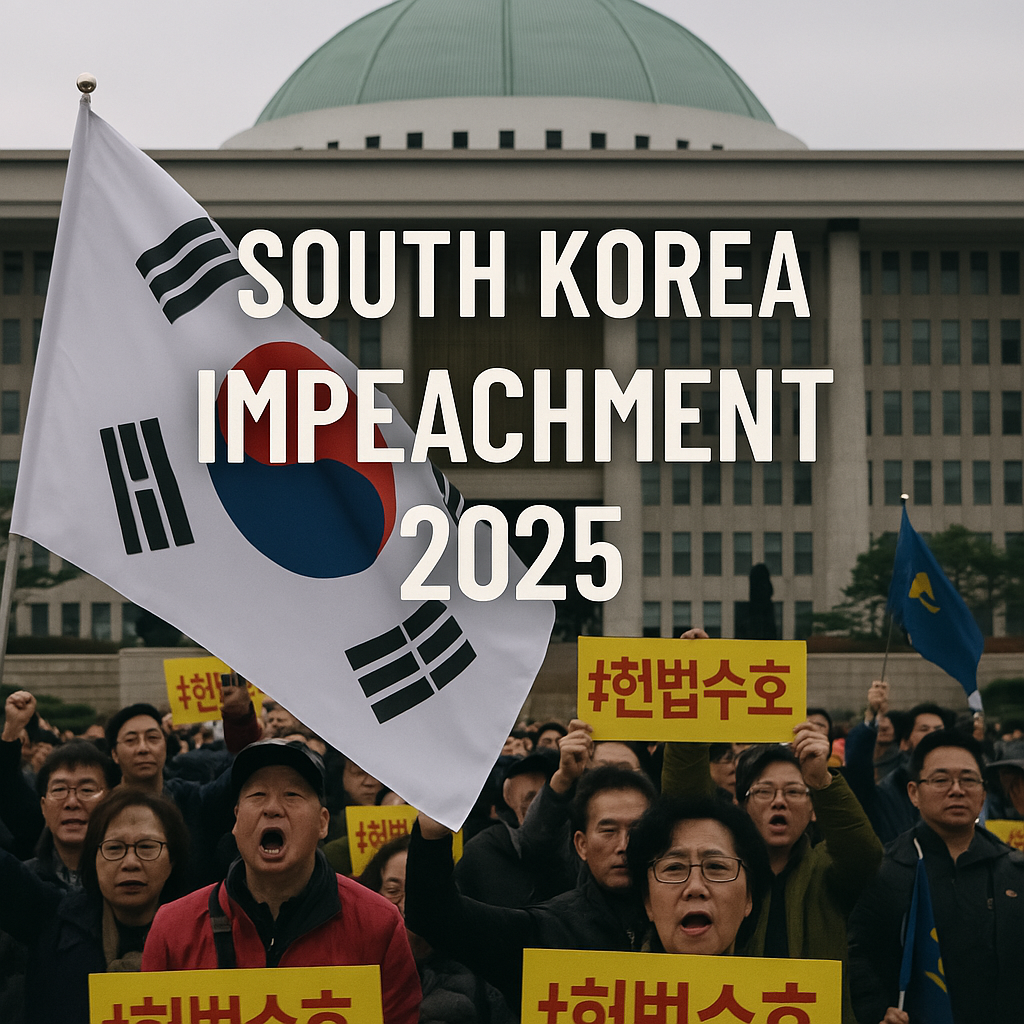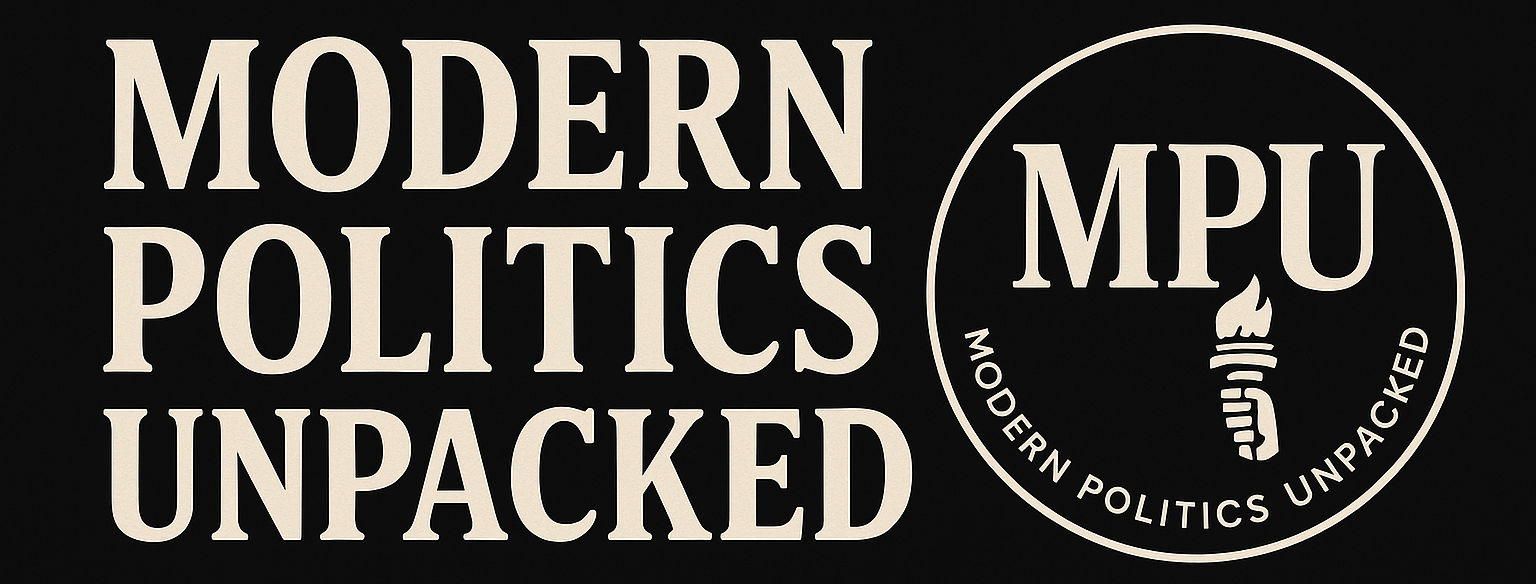South Korea's Democratic Crisis: Yoon Suk Yeol Impeached Over Martial Law Declaration

In a historic and unprecedented decision, South Korea's Constitutional Court on April 2, 2025, unanimously upheld the impeachment of President Yoon Suk Yeol, citing the unconstitutional declaration of martial law without sufficient justification. The ruling has plunged the country into political uncertainty and intensified the ideological divisions that have simmered for years.
Under South Korea's constitution, a new presidential election must be held within 60 days, triggering what is expected to be a fiercely contested and emotionally charged campaign.
This article explores:
- What led to Yoon's impeachment
- The legal and constitutional basis for the ruling
- Public and political reactions
- Implications for South Korea’s democratic stability
- What’s next in the election process
- How this affects the U.S.-South Korea alliance
🧨 What Sparked the Impeachment?
President Yoon Suk Yeol, elected in 2022, had long been criticized for authoritarian tendencies. The crisis escalated when, amid nationwide labor protests and regional security tensions, Yoon declared martial law in mid-February 2025.
The government claimed the move was necessary to curb unrest and protect national security. However, critics argued that the protests—while disruptive—were peaceful and legally protected. No clear evidence of imminent threat or insurrection was provided to justify such an extreme measure.
Yoon’s opponents in the National Assembly, where opposition parties hold a slim majority, swiftly passed an impeachment motion in early March.
"This was a blatant abuse of executive power," said Assembly Speaker Park Ji-hoon. "Martial law is not a tool for political convenience."
⚖️ The Constitutional Court’s Decision
In a 9-0 ruling, the Constitutional Court found that President Yoon had violated Article 76 of the South Korean Constitution, which allows emergency powers only under grave and immediate threats.
The court stated:
"There was no credible basis for the declaration of martial law. The president acted unilaterally and disproportionately, undermining constitutional governance."
Legal scholars have praised the decision as a defense of civilian control and legal norms.
"This is a reaffirmation that even the highest office is not above the constitution," said Professor Kim Seung-hwan of Seoul National University.
🧠 Political Reactions & Public Mood
South Korea remains sharply divided:
- Conservatives argue the court overstepped and accuse the opposition of orchestrating a political coup.
- Progressives and civil rights groups support the ruling, framing it as a victory for democracy.
Mass demonstrations erupted in both support and protest of the ruling. In Seoul, tens of thousands gathered in Gwanghwamun Plaza, waving flags, chanting slogans, and demanding political accountability or presidential restoration, depending on their side.
“We are protecting our democracy, not attacking it,” said activist Han Ji-soo. “No president should be allowed unchecked power.”
Meanwhile, conservative party leader Lee Joon-seok called for “respecting institutional decisions” but warned of dangerous polarization.
📆 What Happens Next?
South Korea’s electoral commission has announced a snap presidential election to be held no later than June 1, 2025.
Potential candidates are already positioning themselves:
- Kim Hye-ran (Democratic Party) – former justice minister, known for anti-corruption efforts
- Lee Joon-seok (People Power Party) – Yoon ally and former party chairman
- Ryu Ji-hoon (Green Future Alliance) – rising progressive voice focused on civil liberties
Turnout is expected to be high, and the campaign season will likely spotlight:
- Presidential power limits
- Civil-military relations
- National unity
- Constitutional reform
The next president will face immediate challenges: rebuilding trust in institutions, stabilizing domestic unrest, and navigating tense diplomacy with North Korea and China.
🌐 International Response
The global community has largely applauded South Korea’s legal process:
- United Nations Secretary-General António Guterres praised the peaceful judicial process and urged political unity.
- U.S. Secretary of State Antony Blinken stated: "We have confidence in Korea’s constitutional system and respect its democratic resilience."
- China’s Foreign Ministry called it an “internal matter” but emphasized the need for regional stability.
The European Union also commended South Korea's commitment to rule of law and democratic norms.
Source: The Diplomat, April 2, 2025
International markets showed mild volatility, but the Korean won rebounded after the court reaffirmed legal order.
🇺🇸 U.S.-South Korea Relations: An Alliance Under Stress?
The impeachment could temporarily strain U.S.-South Korea ties. President Yoon was a close ally of Washington, especially on regional security, supply chains, and North Korea deterrence. With his removal, U.S. officials face uncertainty about the continuity of bilateral defense strategy.
“Yoon’s departure leaves a vacuum in the trilateral U.S.-Japan-Korea alignment,” said Victor Cha, senior Asia analyst at CSIS. “The next administration’s stance on military cooperation will be closely watched.”
Some U.S. lawmakers expressed concern:
“We hope South Korea remains a stable and committed partner in Indo-Pacific defense,” said Senator Tammy Duckworth. “But leadership transitions always require extra diplomatic calibration.”
However, American officials emphasized they would respect democratic outcomes and remain committed to mutual defense obligations under the U.S.-ROK Mutual Defense Treaty.
🧭 Why This Matters for South Korea’s Democracy
This is only the second time in South Korea’s democratic history that a president has been impeached and removed from office. The first was President Park Geun-hye in 2017.
Analysts say this event may signal both maturity and vulnerability in South Korean democracy:
- Maturity in that institutions acted independently and peacefully
- Vulnerability in how quickly constitutional norms can be tested by a powerful executive
“The court acted as a constitutional firewall,” said Park Hyun-soo, a constitutional law expert. “But the damage done to trust in government will take years to repair.”
📌 Conclusion
The impeachment of President Yoon Suk Yeol is a landmark moment for South Korea. It reflects both the strength and fragility of democratic systems in the face of crisis. As the country prepares for new elections, the world watches to see how one of Asia’s leading democracies will reassert its values—or fracture under pressure.
Sources:
